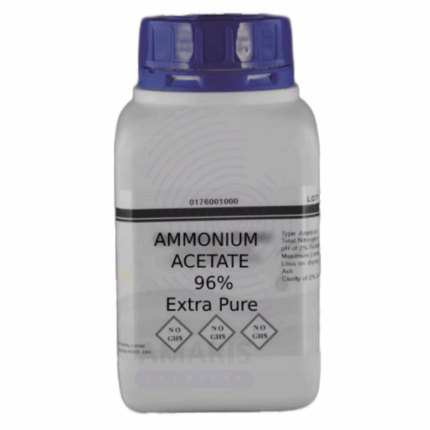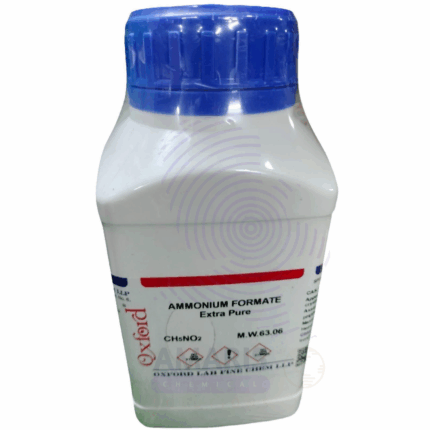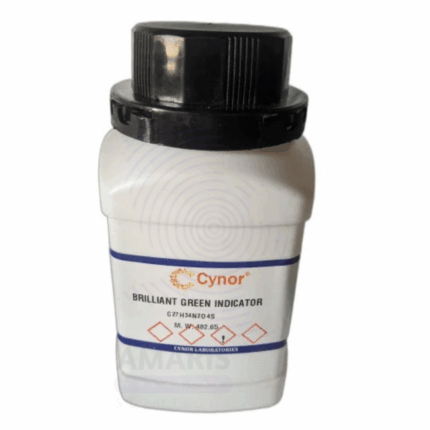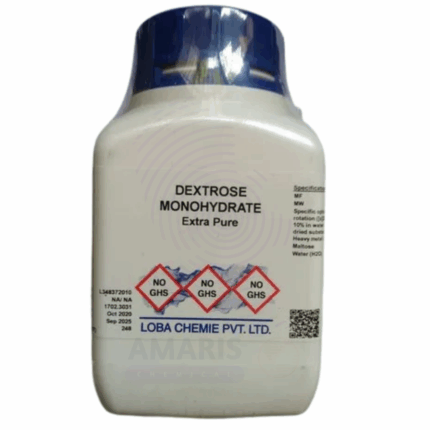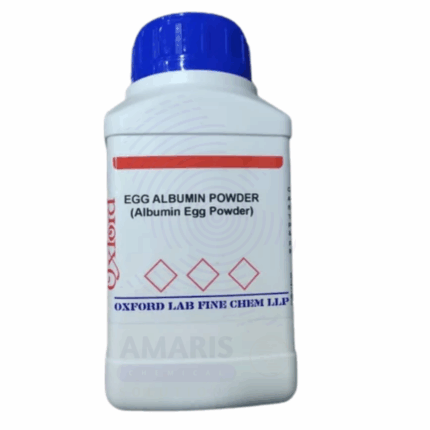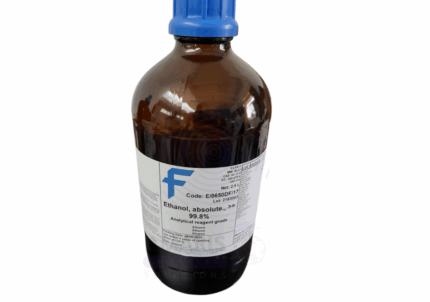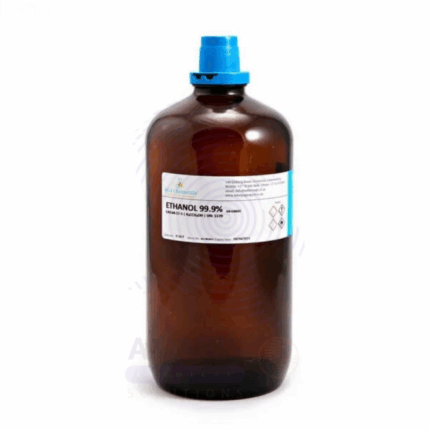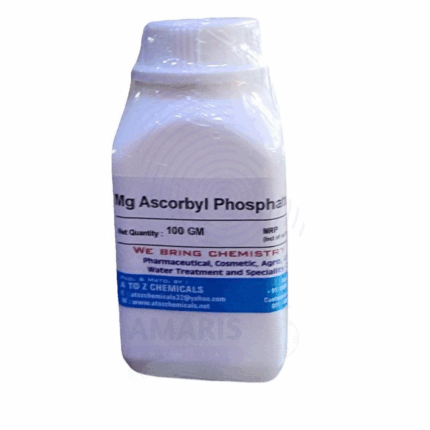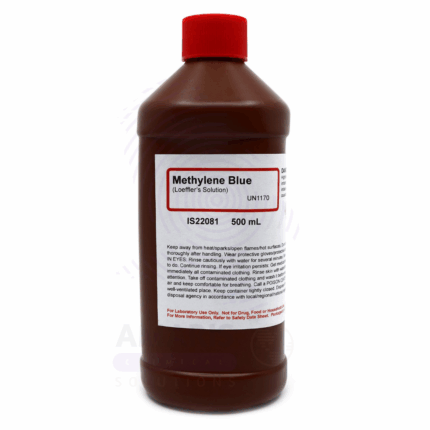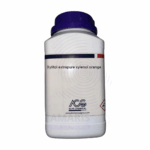
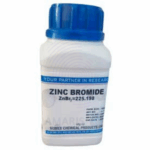
Yeast Active Dry Extra Pure
$ 16.89 Original price was: $ 16.89.$ 16.78Current price is: $ 16.78.
Yeast Active Dry Extra Pure is a high-quality, dry granulated form of Saccharomyces cerevisiae, widely used as a biological reagent in microbiological, biochemical, and fermentation research. Its consistent purity and viability make it ideal for laboratory studies involving fermentation, enzymatic activity, genetic research, and bioprocessing. It is also a key component in pharmaceutical and biotechnological applications, supporting recombinant protein production and probiotic development. The dry, stable form allows for easy storage and precise dosing. Proper handling is important to avoid moisture contamination and dust inhalation.
Yeast Active Dry Extra Pure
PRIMARY USES
- Analytical Reagent & Laboratory Applications:
- Used as a biological reagent in microbiology and fermentation research
- Serves as a model organism for studying yeast metabolism, genetics, and enzymatic activity
- Employed in biochemical assays involving fermentation pathways and bioethanol production studies
- Used in enzyme production and screening experiments
- Key reagent for investigating yeast-based biotransformations and metabolic engineering
- Pharmaceutical & Biotechnology Industry:
- Utilized in the production of pharmaceuticals such as vaccines and recombinant proteins via yeast expression systems
- Used in probiotic formulations and nutritional supplements research
- Employed for large-scale fermentation studies in bioreactor optimization and scaling
- Food and Beverage Industry (Research & Development):
- Used in controlled fermentation experiments to optimize baking, brewing, and biofuel production
- Essential for studying the effects of different substrates on yeast activity and product yield
- Applied in quality control labs for testing yeast viability and purity in food products
SECONDARY USES
- Environmental & Agricultural Research:
- Used in soil and compost microbiology studies to assess organic matter decomposition
- Applied in bioremediation research involving yeast-based pollutant degradation
- Biochemical & Molecular Biology Research:
- Employed as a host organism in molecular cloning and gene expression studies
- Used in proteomics and metabolomics to analyze yeast proteins and metabolites
1. Basic Identification Attributes
Chemical Name: Yeast Active Dry (Saccharomyces cerevisiae)
CAS Number: 68876-77-7 (typical for dry yeast)
HS Code: 2102.10.00
Molecular Formula: N/A (biological material)
Synonyms:
- Active Dry Yeast
- Baker’s yeast (dry form)
- Saccharomyces cerevisiae dry culture
2. Physical & Chemical Properties
Physical State: Granular powder, dry
Color & Odor: Light beige to cream color, characteristic yeast smell
Melting Point: Not applicable (biological material)
Density/Specific Gravity: Approx. 0.4–0.6 g/cm³
Solubility: Rehydrates readily in water
pH Level: Neutral to slightly acidic in suspension (~pH 5–6)
Vapor Pressure & Volatility: Not applicable
Flash Point: Not flammable
Autoignition Temperature: Not applicable
Viscosity: Not applicable
3. Safety & Hazard Attributes
Hazard Class (GHS Classification):
- Generally recognized as safe (GRAS)
- Potential allergen for sensitive individuals
- Can cause respiratory sensitization if inhaled as dust
NFPA Ratings: - Health: 1 (mild irritant)
- Flammability: 0
- Reactivity: 0
Exposure Limits: - No specific OSHA PEL; use standard dust precautions
Reactivity: - Stable under normal conditions
- Supports microbial growth if contaminated
4. Storage & Handling Attributes
Storage Conditions:
- Store in a cool, dry place away from moisture
- Keep sealed to prevent contamination and moisture uptake
Incompatible Materials: - Moisture (causes premature activation and spoilage)
- Strong oxidizers
Container Type: - Airtight, moisture-proof packaging
Shelf Life & Expiration Date: - Typically 1–2 years if stored properly
Special Handling Requirements: - Avoid dust inhalation
- Use gloves and masks if handling large quantities
5. Regulatory & Compliance Attributes
Regulatory Status:
- Approved for food and pharmaceutical use (FDA GRAS status)
- Compliant with food-grade and laboratory standards
Transportation Restrictions: - Not hazardous; no special restrictions
Waste Disposal Method: - Compostable and biodegradable under normal waste regulations
6. Environmental & Health Impact
Ecotoxicity:
- Non-toxic, biodegradable
Persistence in Environment: - Decomposes readily in natural environments
Carcinogenicity/Mutagenicity: - Not classified as carcinogenic or mutagenic
Biodegradability: - Fully biodegradable, natural biological material
SAFETY PRECAUTIONS
Personal Protective Equipment (PPE):
- Use gloves when handling large amounts to avoid skin irritation
- Use dust mask or respirator if dusty conditions occur
- Wear safety goggles if dust generation is significant
Handling:
- Handle in well-ventilated areas
- Avoid inhaling dust
- Prevent moisture contact during storage
Storage:
- Store in tightly sealed, dry containers
- Keep away from heat and moisture sources
FIRST AID MEASURES
Inhalation:
- Move to fresh air if respiratory irritation occurs
- Seek medical attention if symptoms persist
Skin Contact:
- Wash with soap and water if irritation develops
- Seek medical advice if rash or allergic reaction occurs
Eye Contact:
- Rinse eyes with plenty of water for at least 15 minutes
- Seek medical attention if irritation persists
Ingestion:
- Generally safe; rinse mouth with water if discomfort occurs
- Seek medical advice if abnormal symptoms appear
FIRE FIGHTING MEASURES
Flammability:
- Non-flammable
Extinguishing Media: - Use water spray, foam, or dry chemical extinguisher
Hazardous Combustion Products: - May produce carbon oxides upon combustion
Firefighter Protection: - Wear protective gear and breathing apparatus as needed


 Preservatives(food)
Preservatives(food) Flavor Enhancers
Flavor Enhancers Acidulants
Acidulants Sweeteners
Sweeteners Antioxidants
Antioxidants Colorants(food)
Colorants(food) Nutraceutical Ingredients (food)
Nutraceutical Ingredients (food) Nutrient Supplements
Nutrient Supplements Emulsifiers
Emulsifiers
 Collectors
Collectors Dust Suppressants
Dust Suppressants Explosives and Blasting Agents
Explosives and Blasting Agents Flocculants and Coagulants
Flocculants and Coagulants Frothers
Frothers Leaching Agents
Leaching Agents pH Modifiers
pH Modifiers Precious Metal Extraction Agents
Precious Metal Extraction Agents
 Antioxidants(plastic)
Antioxidants(plastic) Colorants (Pigments, Dyes)
Colorants (Pigments, Dyes) Fillers and Reinforcements
Fillers and Reinforcements Flame Retardants
Flame Retardants Monomers
Monomers Plasticizers
Plasticizers Polymerization Initiators
Polymerization Initiators Stabilizers (UV, Heat)
Stabilizers (UV, Heat)
 Antifoaming Agents
Antifoaming Agents Chelating Agents
Chelating Agents Coagulants and Flocculants
Coagulants and Flocculants Corrosion Inhibitors
Corrosion Inhibitors Disinfectants and Biocides
Disinfectants and Biocides Oxidizing Agents
Oxidizing Agents pH Adjusters
pH Adjusters Scale Inhibitors( water)
Scale Inhibitors( water)
 Antioxidants(cosmetic)
Antioxidants(cosmetic) Emollients
Emollients Fragrances and Essential Oils
Fragrances and Essential Oils Humectants
Humectants Preservatives
Preservatives Surfactants(cosmetic)
Surfactants(cosmetic) Thickeners
Thickeners UV Filters
UV Filters
 Fertilizers
Fertilizers Soil Conditioners
Soil Conditioners Plant Growth Regulators
Plant Growth Regulators Animal Feed Additives
Animal Feed Additives Biostimulants
Biostimulants Pesticides (Herbicides, Insecticides, Fungicides)
Pesticides (Herbicides, Insecticides, Fungicides)
 Active Pharmaceutical Ingredients (APIs)
Active Pharmaceutical Ingredients (APIs) Excipients
Excipients Solvents(pharmaceutical)
Solvents(pharmaceutical) Antibiotics
Antibiotics Antiseptics and Disinfectants
Antiseptics and Disinfectants Vaccine Adjuvants
Vaccine Adjuvants Nutraceutical Ingredients (pharmaceutical)
Nutraceutical Ingredients (pharmaceutical) Analgesics & Antipyretics
Analgesics & Antipyretics
 Analytical Reagents
Analytical Reagents Solvents(lab)
Solvents(lab) Chromatography Chemicals
Chromatography Chemicals Spectroscopy Reagents
Spectroscopy Reagents microbiology-and-cell-culture-reagents
microbiology-and-cell-culture-reagents Molecular Biology Reagents
Molecular Biology Reagents Biochemical Reagents
Biochemical Reagents Inorganic and Organic Standards
Inorganic and Organic Standards Laboratory Safety Chemicals
Laboratory Safety Chemicals Specialty Laboratory Chemicals(Special Laboratory Equipment)
Specialty Laboratory Chemicals(Special Laboratory Equipment)
 Demulsifiers
Demulsifiers Hydraulic Fracturing Fluids
Hydraulic Fracturing Fluids Scale Inhibitors(oil)
Scale Inhibitors(oil) Surfactants(oil)
Surfactants(oil) Drilling Fluids
Drilling Fluids
 Dyes and Pigments
Dyes and Pigments Bleaching Agents
Bleaching Agents Softening Agents
Softening Agents Finishing Agents
Finishing Agents Antistatic Agents
Antistatic Agents
 Admixtures
Admixtures Waterproofing Agents
Waterproofing Agents Sealants and Adhesives
Sealants and Adhesives Curing Compounds
Curing Compounds Concrete Repair Chemicals
Concrete Repair Chemicals Anti-Corrosion Coatings
Anti-Corrosion Coatings
 Surfactants(cleaning)
Surfactants(cleaning) Builders
Builders Enzymes
Enzymes Solvents (Cleaning)
Solvents (Cleaning) Fragrances
Fragrances
 Electronic Chemicals
Electronic Chemicals Catalysts
Catalysts Lubricants
Lubricants Photographic Chemicals
Photographic Chemicals Refrigerants
Refrigerants Automotive chemicals
Automotive chemicals Pyrotechnic Chemicals
Pyrotechnic Chemicals
 Biodegradable Surfactants
Biodegradable Surfactants Bio-based Solvents
Bio-based Solvents Renewable Polymers
Renewable Polymers Carbon Capture Chemicals
Carbon Capture Chemicals Wastewater Treatment Chemicals
Wastewater Treatment Chemicals
 Pigments
Pigments Solvents(paint)
Solvents(paint) Specialty Coatings
Specialty Coatings Binders/Resins
Binders/Resins Additives
Additives Driers
Driers Anti-Corrosion Agents
Anti-Corrosion Agents Functional Coatings
Functional Coatings Application-Specific Coatings
Application-Specific Coatings
 Leavening Agents
Leavening Agents Dough Conditioners
Dough Conditioners Flour Treatments
Flour Treatments Fat Replacers
Fat Replacers Decoratives
Decoratives Preservatives(baking)
Preservatives(baking)
 Plasticizers & Softeners
Plasticizers & Softeners Reinforcing Agents
Reinforcing Agents Adhesion Promoters
Adhesion Promoters Vulcanizing Agents
Vulcanizing Agents Antidegradants
Antidegradants Blowing Agents
Blowing Agents Fillers & Extenders
Fillers & Extenders Accelerators & Retarders
Accelerators & Retarders

